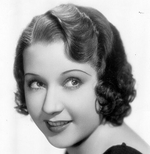Michael Riedel on behind-the-scenes diversity struggles on Broadway
BETTY22
Broadway Star Joined: 12/29/13
#25Michael Riedel on behind-the-scenes diversity struggles on Broadway
Posted: 11/15/22 at 5:18pm
Is it terrible to admit - I MISS HIM?
Page 6 is fantastic at covering theatre gossip, but I do miss a single column devoted just to theatre dish.
bk
Broadway Legend Joined: 7/20/03
#26Michael Riedel on behind-the-scenes diversity struggles on Broadway
Posted: 11/15/22 at 5:59pm
A healing space? What is Broadway now, kindergarten?
#27Michael Riedel on behind-the-scenes diversity struggles on Broadway
Posted: 11/16/22 at 3:16pm
BETTY22 said: "Is it terrible to admit - I MISS HIM?
Page 6 is fantastic at covering theatre gossip, but I do miss a single column devoted just to theatre dish."
I enjoyed him on Theater Talk, and his books are good.
#28Michael Riedel on behind-the-scenes diversity struggles on Broadway
Posted: 11/16/22 at 3:39pm
bk said: "A healing space? What is Broadway now, kindergarten?"
It's the state of the world. I have mixed feelings.
It is all to the good to show more care and concern for people's psychological health. And I can definitely see how, say, an intimacy coach could be very beneficial in specific situations. These are film examples, but various actors--Rita Moreno in the scene in WSS where Anita is assaulted by the Jets, Jennifer Salt in her rape scene for Midnight Cowboy and Ned Beatty in his rape scene for Deliverance--have talked about the psychological trauma such scenes caused. For Moreno, it seems to have been disturbing only in the moment, but for Salt and Beatty, it was something they carried with them for decades. All because of the way things were handled onset. So having a coach there to insure actors are treated with respect, even when the characters they are playing are not, and to insure no inappropriate boundaries are crossed, is all to the good.
An intimacy coach for kissing seems a bit much.
My other complaint--or "potential reservation" might be the better term--relates to vetting scripts for "problematic material," creating a climate where people are afraid to challenge intellectual/aesthetic boundaries for fear of censorship--and of censorship masquerading as progressive values. I also worry that if all these various experts are now mandated parts of a Broadway team, how that might reduce the number of venturesome projects producers can afford to take on.
But to me, much of this is so hypothetical that it's difficult to have a strong objection. It would be easier to discuss a specific show, the specific mandates for the production that were involved, how relevant they really seemed to the specific production, and what that meant for the show's eventual cost (and thus, its chance at making a profit).
ivorylawrance
Swing Joined: 11/14/22
#29Michael Riedel on behind-the-scenes diversity struggles on Broadway
Posted: 11/23/22 at 8:40pm
Whether you're applying to college or just trying to break into the professional world, a diversity essay https://papersowl.com/examples/diversity/ is essential. It's a chance to tell the university what makes you special. You can discuss your unique background, hobbies and values. You can also share stories from your past, which will give the admissions committee a glimpse of who you are.
Updated On: 11/27/22 at 08:40 PM
Rainah
Broadway Star Joined: 11/24/16
#30Michael Riedel on behind-the-scenes diversity struggles on Broadway
Posted: 11/28/22 at 12:11pm
I don't think an intimacy coach is needed for everything, but we do need to be having more conversations about what we can do to make actors comfortable so they can provide their best performance. Things like choreographing intimacy scenes like fight scenes, closed sets when blocking scenes involving nudity, and above all talking to actors and making them empowered to suggest what would make THEM comfortable.
An intimacy coordinator (or a diversity consultant) isn't much use if the director ignores everything they say.
It's in everyone's best interest to create a situation where actors feel comfortable and safe enough to really be vulnerable and give it their all, trusting that their cast and crew have their backs.
#31Michael Riedel on behind-the-scenes diversity struggles on Broadway
Posted: 11/28/22 at 1:20pm
That elusive middle ground between neoliberal anti-racism and white christian nationalism.
felixleiter
Understudy Joined: 11/10/12
#32Michael Riedel on behind-the-scenes diversity struggles on Broadway
Posted: 11/28/22 at 3:25pm
the more I think about this article, the more I think that it is related to the league and AEA being in the middle of a pretty difficult re-negotiation of the Production contract.
#33Michael Riedel on behind-the-scenes diversity struggles on Broadway
Posted: 11/28/22 at 7:42pm
joevitus said: "I'd say that is an even more ridiculous response, as what he's complaining about has zero to do with editing or proofreading and involves censorship and the stifling of "troublesome" subjects or characters out of a fear of controversy."
Well, color me surprised to open this thread tonight, and find a two-week-old response to a post I wrote 10 months ago. I had to go back and read the article again to even remember what exactly the argument was lol
Based on the way the sentence is written, it’s unclear whether these “diversity dramaturgs” are evaluating the scripts before or after the company has already chosen to produce it. If it’s BEFORE, then, yes, I'm inclined to agree that it feels a little bit unconstructive, especially if their feedback isn’t passed on to the playwright for them to implement (or not).
But because of the way that sentence is directly followed by the quote about having someone “look over your shoulder” while writing, I took it to mean that this assessment was taking place AFTER the play had already been selected or commissioned. In which case, I feel it can easily be viewed as an extension of the proofreading/development process. Again, I maintain that if a playwright is interested in trying to avoid perpetuating harmful tropes for ideology - or at the very least, avoiding public backlash for their own benefit - then having a pair of eyes on the script who specializes in that sort of feedback, could be seen as a very valuable resource for the playwright. The work will be looked at through a socially critical lens regardless; I’d argue it’s better to get in front of it.
Again, that’s assuming it’s being done in a constructive way. If it isn’t, I’ll concede the point.
But if it IS done constructively, and the playwright chooses to see it as censorship - and not as an opportunity to create work that will be better-received by the public / by the communities it represents - then it sounds like it’s going to be a tough career for them, and I don’t envy their mindset.




